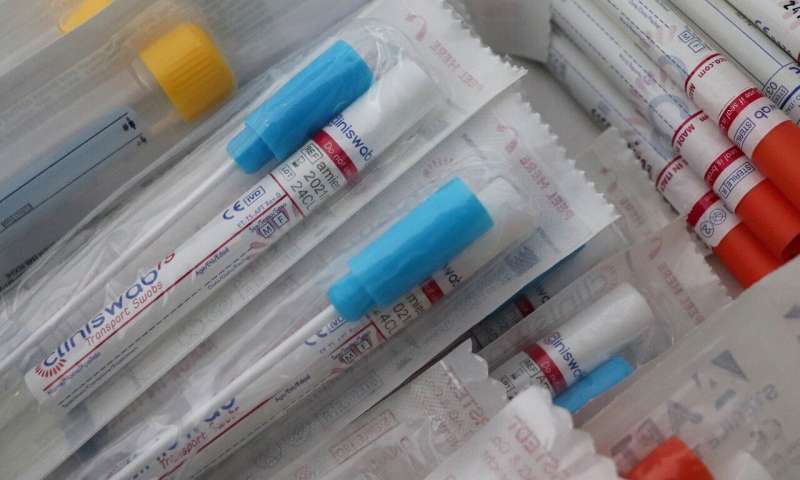
In the month since the Trump administration got a flood of favorable press for its plan to ship 150 million rapid coronavirus diagnostic tests to states, the tests have proved problematic.
That didn’t stop the administration’s publicists from continuing to tout antigen tests on Tuesday, emailing a news release to media across the country about distributing the latest batch of tests.
This time, the template press release was customized to name the state, mention the governor, and quantify the allotted number of tests. While the latest pitch didn’t generate the big headlines of September, the release was used, sometimes verbatim, by TV, radio, newspapers, and blogs in New Jersey, New York, Arizona, Utah, Delaware, South Carolina, Indiana, and Nevada, to name a few.
“Distributing these rapid tests directly to states is consistent with the Trump Administration’s successful, ongoing approach of testing the right person, with the right test at the right time, is working and the effort will continue until the pandemic is under control,” read a slightly garbled quote in the release attributed to Brett Giroir, assistant secretary for health.
Pennsylvania media outlets did not bite, based on Google searches. Nor was the Pennsylvania Department of Health “aware that there was going to be another public information push from the federal government about the tests going out,” said department spokesperson Nathan Wardle.
Antigen tests can signal a potential new infection even before it causes symptoms, by detecting a protein the virus starts making soon after it invades the body. Because the low-cost, compact antigen detection devices provide results within minutes wherever the tests are given, they can potentially be used to screen people in group settings such as schools, nursing homes, and prisons. The government is paying $760 million to Abbott Laboratories for the diagnostic testing giant’s BionaxNOW antigen tests.
However, antigen tests are not as accurate as the by-now-familiar swab-way-up-the-nose molecular diagnostic tests. Ohio Gov. Mike DeWine, the Indianapolis Colts, and Nevada nursing homes are among those who have had false alarms, called false positives, with antigen tests, only to test negative with confirmatory molecular tests.
Another problem with antigen tests is that, while they are easy to administer, they aren’t foolproof, and entering the results in online communicable disease reporting systems takes training and time. Non-medical sites such as elementary schools and colleges may struggle with their new tasks.
“There are challenging issues with these non-traditional sites,” the New Jersey Department of Health emailed in a response to questions from The Inquirer. “Facilities may find it difficult to have staff perform these duties. And, even after training, there can be data control issues arising from data entry errors by new users.”
The Trump administration has not told states how to publicly share the data. Pennsylvania is now giving daily reports on positive antigen tests—so far, about 140 a day—and including them in the total of coronavirus cases. New Jersey is not publicly sharing its data, or folding the information into case counts—at least, not yet.
Finally, antigen tests, like the more accurate molecular tests, provide only a snapshot in time, not a guarantee against infection emerging soon afterward, so they need to be repeated regularly. Pennsylvania, with a planned allotment of 3.85 million rapid diagnostic tests, has already distributed about 163,000 antigen tests to 11 counties with significant outbreaks in the last two weeks, Wardle said.
Source: Read Full Article
